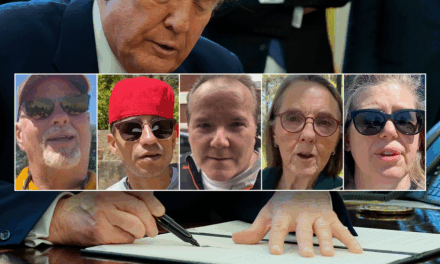In a recent revelation, veteran journalist Lesley Stahl, known for her significant contributions to ’60 Minutes,’ voiced her discontent towards CBS corporate leader Shari Redstone. The tension arose from CBS’ decision regarding a lawsuit involving former President Donald Trump, which has provoked considerable media scrutiny and public discourse.
Lesley Stahl, an influential figure in American journalism, has clocked decades in the field, becoming a household name through her insightful and often provocative interviews on ’60 Minutes.’ Her displeasure arises from what she perceives as a misstep by the network under the leadership of Shari Redstone, especially in the context of handling sensitive political narratives.
The lawsuit in question is linked to Trump’s ongoing legal battles which have captivated the nation’s attention, impacting not only the political landscape but also the way media organizations report on such controversial figures. Stahl’s frustration is not merely about the lawsuit itself but extends to how CBS, a major news network, decides to navigate its coverage and involvement in politically charged situations.
Stahl’s concerns reflect a broader anxiety among journalists regarding the power dynamics in corporate media. Shari Redstone, as the chairwoman of CBS, embodies the intersection of media and corporate interests, which can sometimes clash with journalistic integrity. For journalists like Stahl, who have dedicated their careers to uncovering the truth and providing fair coverage, corporate decisions can feel like obstacles in the pursuit of responsible journalism.
In interviews discussing the matter, Stahl has articulated her belief that corporate influences should not dictate the narrative that shapes public perception. This assertion touches on a vital issue in today’s media landscape where many feel that the independence of journalism is under threat from various influences, including corporate ownership, political pressures, and the changing landscape of news consumption.
Stahl’s expressions of anger reflect a growing frustration among journalists who feel that their work is often compromised by corporate interests. This sentiment has been echoed by many in the journalism community who argue that the convergence of business and news media can lead to sanitized coverage, lacking the depth and critical perspective necessary for addressing complex political issues.
The implications of Stahl’s dissatisfaction with Redstone and CBS extend beyond their individual relationship. It raises questions about the role of media organizations in a democracy and how they address issues that are not only politically significant but also personally impactful for many people. In an era characterized by rampant misinformation and polarized media environments, responsible journalism remains crucial.
Stahl’s concerns demonstrate the importance of accountability in media and the potential ramifications when that accountability is perceived to be lacking. The public relies on news organizations to provide them with the facts and context necessary to make informed decisions about their political choices and civic engagement.
For many journalists, the struggle for integrity in reporting often feels like an uphill battle against the backdrop of corporate agendas, audience ratings, and political affiliations. The challenge is to maintain journalistic ethics and a commitment to accuracy while navigating a landscape in which sensationalism often reigns supreme.
Lesley Stahl’s vocal frustration adds a personal dimension to this ongoing conversation about media ethics. Her standing as a seasoned journalist lends weight to her claims, and it is likely that her criticism may resonate with both the public and her peers in the industry. Building on her long career, she symbolizes a faction of journalists who are unwilling to bend to corporate or political influence and are determined to uphold the principles of free and fair reporting.
In light of the ongoing discourse regarding former President Trump and his complex legal circumstances, the media’s role is under increased scrutiny. As developments continue to unravel, journalists are tasked not only with reporting facts but also reflecting on the implications of their coverage.
Stahl’s experience exemplifies the delicate balance that must be achieved between corporate interests and journalistic integrity. As news organizations navigate these turbulent waters, it becomes crucial for journalists to advocate for transparency, fairness, and thorough reporting, often requiring a fierce commitment to challenging the status quo.
The tension between Lesley Stahl and Shari Redstone represents a microcosm of the broader struggles faced by journalists today. Companies like CBS are positioned at a crossroads as they seek to maintain their relevance and credibility in a world that sometimes seems indifferent to the importance of ethical journalism.
The fallout from the Trump lawsuit is likely to continue shaping discourse in both public and private circles, putting additional pressure on media outlets to act responsibly. For viewers, understanding the implications of this litigation—and the media’s role in it—is paramount. Public perception and trust in news organizations directly hinge on their ability to uphold the values of journalism even in the face of corporate pressure.
Stahl’s boldness exemplifies the kind of engagement needed in contemporary journalism where the lines between media, politics, and the public often blur. The ramifications of how this situation unfolds could serve as a pivotal learning moment for both journalists and the public. It underscores the necessity of ensuring that news organizations do not merely become mouthpieces for corporate interests but serve as bastions of truth in a society that desperately needs it.
As the tension between Lesley Stahl and CBS’ leadership plays out, it brings to light the ongoing transformation of media institutions. The question remains whether corporate ownership structures can coexist with a commitment to the foundational principles of journalism as we know it. The answer may evolve over time, contingent on how news organizations navigate the ever-shifting landscape of politics, public opinion, and ethical reporting.
In conclusion, the public dialogue ignited by this situation is demonstrative of a larger trend where journalists and media outlets must grapple with the challenges presented by modern ownership. Lesley Stahl’s frustration with Shari Redstone serves as a vital reminder for the media’s role in societal discourse. The challenges that lay ahead for journalists depend not just on their editorial decisions, but on their unwavering dedication to uphold journalistic principles in pursuit of truth, transparency, and accountability.































